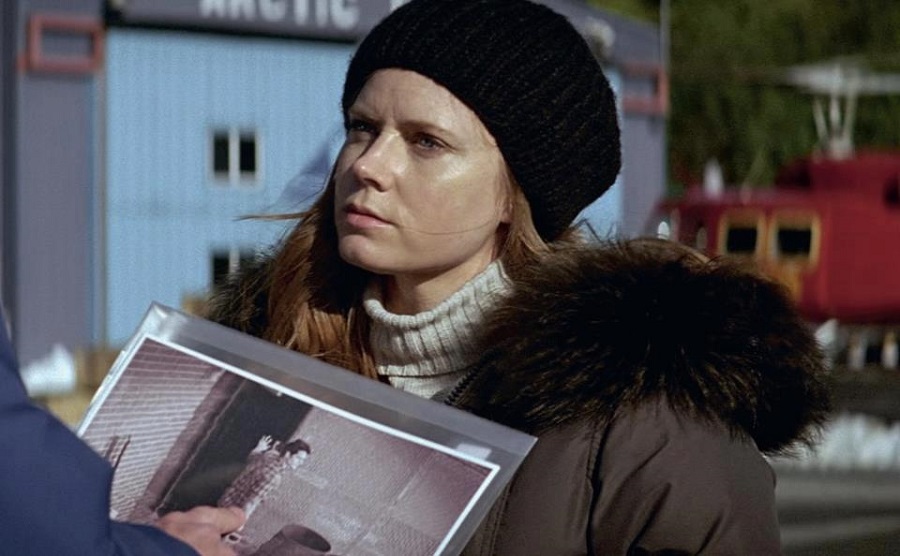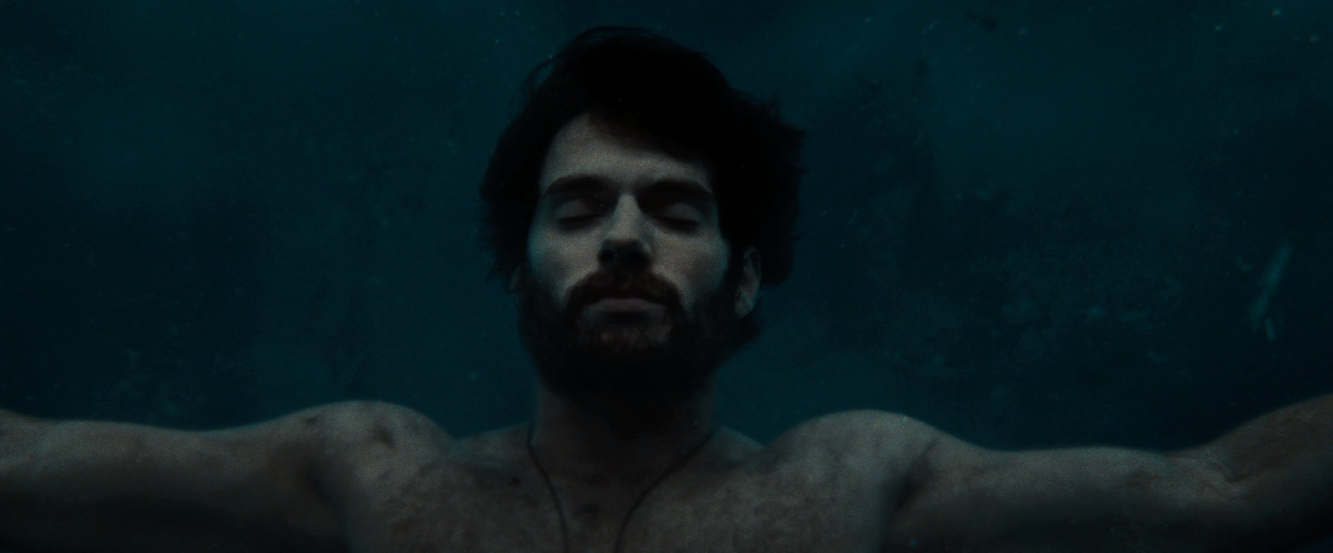 |
| Fragile Barbara Jean (Ronee Blakley) sings her heart out in Robert Altman's greatest film, Nashville (1975) |
Nashville (1975) Directed by Robert Altman. Written by Joan Tewkesbury. Starring Ronee Blakley, Henry Gibson, Keith Carradine, Lily Tomlin, Ned Beatty, Karen Black, Barbara Harris, Gwen Welles, Geraldine Chaplin, Shelley Duvall, and dozens more.
Nashville features some of the best actors native to 1970s Hollywood under the creative direction of the man who represented the bleeding edge of narrative innovation in that place and time. In 1970, Robert Altman emerged from a career in industrial films, television, and occasional features, with M*A*S*H, an anti-establishment, anti-war film - a novelty in a Hollywood still making films with John Wayne, not to mention in the middle of the Vietnam war. Hollywood had produced anti-war "message" films before, but Altman's anarchic, psuedo-Chekhovian semi-improvisational smorgasbord was, at the time, a unique and revolutionary beast. The method, in many ways, is more astonishing thant the message. Altman followed the great success of M*A*S*H with a number of other films in his style reviewing the western (McCabe and Mrs. Miller) and detective genres (The Long Goodbye), among others (Thieves Like Us, California Split), but Altman was building to something greater; rather than merely subverting American and Hollywood film, Altman hoped to focus his lens on America itself.
At times both a precocious and prescient look at the post-Watergate, fin de Vietnam United States, Nashville represents an arthroscopic examination of the nation's damaged but still-beating heart. There are over two dozen major characters in the film, each of them substantive enough to be the subject of their own feature, but all of them representing one part of a listless, wounded population. Each character is equal parts an Alice in Wonderland lunatic and the sanest person you will ever meet. Their chorus, for what ultimately becomes a tragedy, is the quintessential fool in the form of a never-seen but always-talking independent political candidate, Hal Phillip Walker (Thomas Hal Phillips) spouting folksy idealized nonsense from a roving loudspeaker mounted on a van.
When I say that Nashville ultimately settles on being a tragedy, this is incredibly imprecise. Just as there are dozens of characters interacting within the film, each of them seems to be performing within the confines of their own personal genre. Ronee Blakley as Barbara Jean is clearly moving through a tragedy, as she suffers breakdown after breakdown, left brittle by the demands of fame and the hard-driving and abusive tendencies of her husband/manager Barnett (Allen Garfield). She's reflected by two would-be performers, Sueleen Gay (Gwen Welles) and Albuquerque (Barbara Harris). Sueleen, despite being untalented, believes that she can become a Country/Western star, and seems destined to be exploited by those who would prey upon her dreams - definitely a tragedy. Meanwhile, Albuquerque, a.k.a. Winifred, seems to be escaping a tragedy of mediocrity and walking into stardom at the perfect moment - surely a comedy/drama with a big happy ending.
Other characters are pure comedy. Altman's perverse irony is at work in casting Geraldine Chaplin, daughter of Charlie Chaplin, the biggest star of silent film, as a character who simply cannot shut up. Her boundary-free Opal is an outsider in America and, therefore, perfectly free to be open about American taboos, all while remaining virulently bigoted or prejudiced against the disabled, the non-white, the lower class, and, indeed, anyone who isn't a massive celebrity. Jeff Goldblum is a strange presence (in what film isn't that true) as the silent "Tricycle Man," driving his unusual motorcycle from scene to scene, performing magic tricks and physical comedy, and generally unnerving people. Ned Beatty and Michael Murphy, two of the greatest supporting actors in American film, play scheming political operatives, manipulating (read: bullying) the Nashvillians into supporting candidate Walker. But the crown -- or, perhaps, the toupee -- goes to Henry Gibson's Haven Hamilton, who is, at once, both King of Nashville, and the biggest fool. Petty and jingoistic, a Napoleon in a Nudie Suit, he demands total control of the chaos around him, even as he's dragged by his thinning hairline into the tragedy that ends the film.
It's unsurprising, looking at the totality of Altman's work, that his greatest sympathy is for the female characters. Joan Tewkesbury, longtime Altman friend, wrote the intial script. While that script ultimately became a guideline more than anything, Tewksbury was on set helping to craft scenes on the fly with dialogue and other guidance. In Nashville, the film and the city in Altman's film, women seem to have notable prominence in society, but they are sexualized, drained, and cast aside. The perversity in the dynamic is that the culture in place has no shortage of willing female volunteers for this exploitation. That the psychic vampirism of fame draws the groupie L.A. Joan to forsake her family to hook up with musicians isn't much of a stretch, but even the overworked gospel singer and devoted mother, the closest the film comes to a pure soul, is seduced by the temptations offered. Altman and Tewkesbury seem to be riffing on Original Sin a bit, which isn't all that original in practice. I would offer that every character, both female as well as male, has wallowed in the chaotic malaise of the American 1970s for so long that every one of them is vulnerable to whatever temptation comes their way, whether it be sex, money, fame, or hope.
But hope proves to be the greatest tempter of all, and perhaps what all of those other temptations represent. Keenan Wynn's Mr. Green, the uncle to L.A. Donna (a.k.a. Martha) is clearly painfully lonely as his wife, never seen on camera, ails from cancer off-screen. While he is caught up in the chaos of Nashville, it's ultimately his righteous anger, tired of being the only family attending his wife, and furious at his niece and her neglect of family to worship fame that conveys his boarder, the cypher Kenny, into position for the final tragedy. Mr. Green, at his lowest point, indulges in rage, but he ultimately has hope that he may stem his loneliness.
To have gone this far without talking about the music is a bit of an omission. If I have a criticism of Nashville, it may be that the songs don't really feel like they would be Country/Western hits, even in the 1970s. None of the singers are musicians of any note, even Best Song Oscar-Winner Keith Carradine, who is more interesting as a representation of oversexed toxic masculinity than as a guitar player. This feels like a real omission. One of the great hallmarks of C&W was musicianship. While it's true that many stars of the genre are known primarily as singers the absence of strummers in the vein of Johnny Cash, Willie Nelson, Walyon Jennings (Carradine's Tom Frank is, after all, a folk rocker and an out-of-towner) seems like a big blind spot.
While it's true that, at the time, this was the tail end of a period in the music business where a good song was a good song, and that any tune could be a pop, R&B, or C&W hit, many of the songs feel like self-conscious attempts to create plausible C&W hits. This is not to say that they are bad songs, or wholly unsuccessful. They just don't feel representative of the real world, a bit like how a rock and roll song created for a 1960s Bob Hope comedy might sound. While the songs created for the film would undoubtedly influence later generations of alternative-country musicians, they seem to only exist in the film Nashville rather than feel like an honest product of the real Nashville.
This is a nitpick. Nashville is, in some ways, Altman's subversive pass at the musical genre (oddly, his later Popeye, a fascinating, yet imperfect film, is a traditional musical). The music, then, creates stakes for the people. Some characters are struggling, some are untalented, some are psychotically jealous, and some are effortless. You could very well replace the music with money or love, but it would be a lesser film.
The songs exist partially to illuminate the characters of the players, and they do reveal much. Though, in part because of the themes of the film, they also serve as shields, bringing the performers their desired fame, wealth, and control over the chaos. In Nashville, music represents power; the power that you gain, the power that you exert, and the power that you lose. In that aspect, the music is very successful.
In many ways, Nashville is Altman's greatest accomplishment. It's certainly a triumph for sound editing, with every major character wearing a personal microphone, creating the effect of turning an entire city into a sound stage, perfecting the roving giant cast that Altman had been cultivating since M*A*S*H, and allowing him to create films that worked somewhat like the plays of Chekhov, depicting not a hero, or a family, but an entire community. The film endures tremendously, in part, because there are always troubled times, and people will always relate to them.











